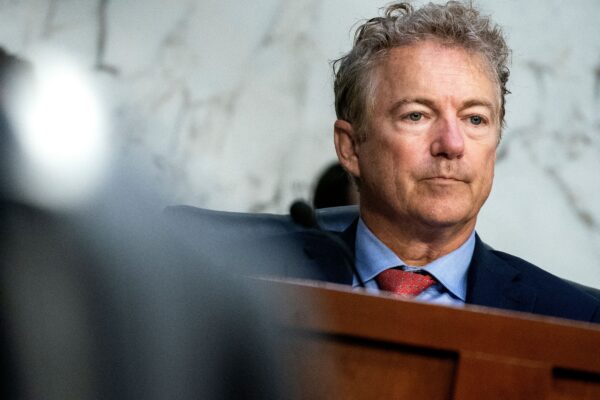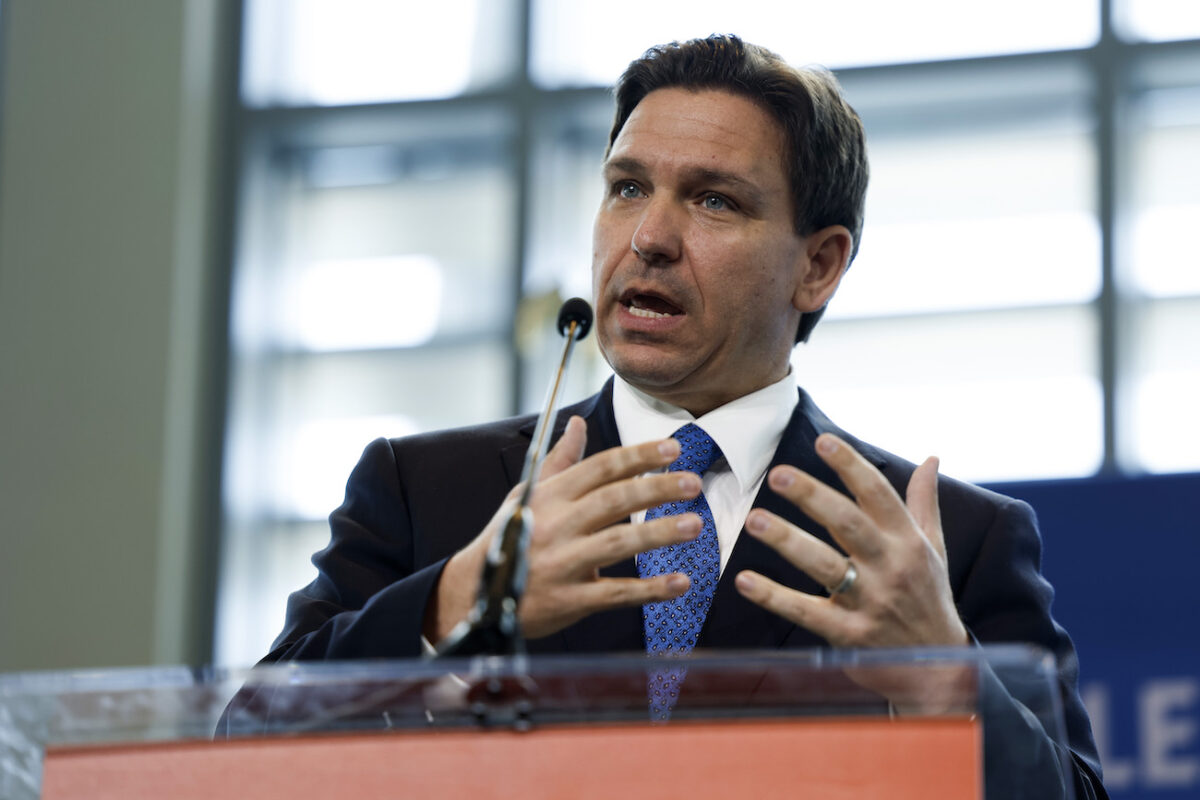The United States will still be “careening towards bankruptcy” after President Joe Biden and House Speaker Kevin McCarthy (R-Calif.) reached an agreement to raise the debt ceiling by $4 trillion, says Gov. Ron DeSantis (R-Fl.) in a new interview.
The 2024 presidential candidate appeared on “Fox & Friends” on Memorial Day and was asked about the potential fracture in the Republican Party following the White House and GOP leadership approving the Fiscal Responsibility Act, which some critics have dubbed the “Fiscal Irresponsibility Act.”
“Prior to this deal, our country was careening towards bankruptcy,” DeSantis said. “And after this deal, our country will still be careening towards bankruptcy.”
He noted that adding $4 trillion to the national debt over the next 18 months is an extension of the pandemic-era spending, and the federal government is “sticking with that” level of COVID spending. The deal, DeSantis said, is “totally inadequate” to bring the budget into a better position.
“They do these cycles to just get them through the next election,” he added. “And that’s ultimately one of the reasons why they continue to fail.”
The governor stated that the $1.2 trillion Florida economy maintains large budget surpluses with one of the country’s lowest debt per capita rates.
In the last fiscal year, Florida posted a record $21.8 billion surplus and reduced its debt by $1.3 billion, with a revenue increase of about 17 percent.
More Fiscal Conservative Backlash
There has been growing backlash from members of the GOP caucus surrounding the details of McCarthy’s plan.
Sen. Rand Paul (R-Ky.) slammed the “fake conservatives” who have agreed to “fake spending cuts.”

“Deal will increase mandatory spending ~5%, increase military spending ~3%, and maintain current non-military discretionary spending at post-COVID levels. No real cuts to see here,” he posted on May 28. “Conservatives have been sold out once again!”
According to Rep. Matt Rosendale (R-Mont.), the fiscal package “continues to fund the Democrats’ and Biden administration’s radical agenda,” labeling the deal the “Fiscal Irresponsibility Act.”
“It is frankly an insult to the American people to support a piece of legislation that continues to put our country’s financial future at risk,” Rosendale said in a statement. “Montanans did not send me to Washington to support business as usual, which is why I will be voting AGAINST the Fiscal Irresponsibility Act.”
Justin Amash, a former Libertarian Congressman from Michigan, described it on Twitter as “the ultimate kick-the-can-down-the-road agreement.”
Sen. Mike Lee (R-Utah) has taken to social media to lambast the deal, calling the “promise of future spending cuts fake.” The senator also reiterated many of his colleagues who say Democrats “love this deal.”
“The debt-ceiling bill is a stunning success when it comes to uniting Democrats,” Lee posted.
His fellow Republican senator from Utah, Mitt Romney, celebrated the deal, writing in a statement that it “represents a good-faith bipartisan compromise.”
“This deal is good for the country in that it prevents a default and subsequent financial meltdown, while also limiting spending. In addition, House leadership successfully fought for conservative priorities,” Romney said.
Another 2024 presidential contender, Vivek Ramaswamy, confirmed on Twitter that he would not endorse the debt limit deal.
“We need to think on the timescales of history, not 2-year election cycles. We should stand for principles, not incrementalism or window-dressing. I won’t apologize for that,” he said.
Ramaswamy has encouraged his fellow White House GOP challengers to inform the public where they stand on the agreement.
Aside from DeSantis and Ramaswamy, the rest of the Republican 2024 field has been quiet on the agreement so far.
Democrat Uncertainty
The White House will be holding calls with House Democrats on May 29 and May 30 to discuss details regarding the debt ceiling agreement. The meetings are expected to concentrate on energy policy and adjustments to federal aid programs, including the Supplemental Nutrition Assistance Program (SNAP) and Temporary Assistance for Needy Families (TANF).
Rep. Ro Khanna (D-Calif.) told NBC News on May 28 that he is undecided and that a “large majority” of members in the House Democratic Caucus “is in flux as to where they’re going to be on this.”
President Biden and other senior Democrats have urged the House and Senate to pass the deal because “it takes the threat of catastrophic default off the table.”
The Fiscal Responsibility Act heads to the lower chamber for a vote on May 30.

















































